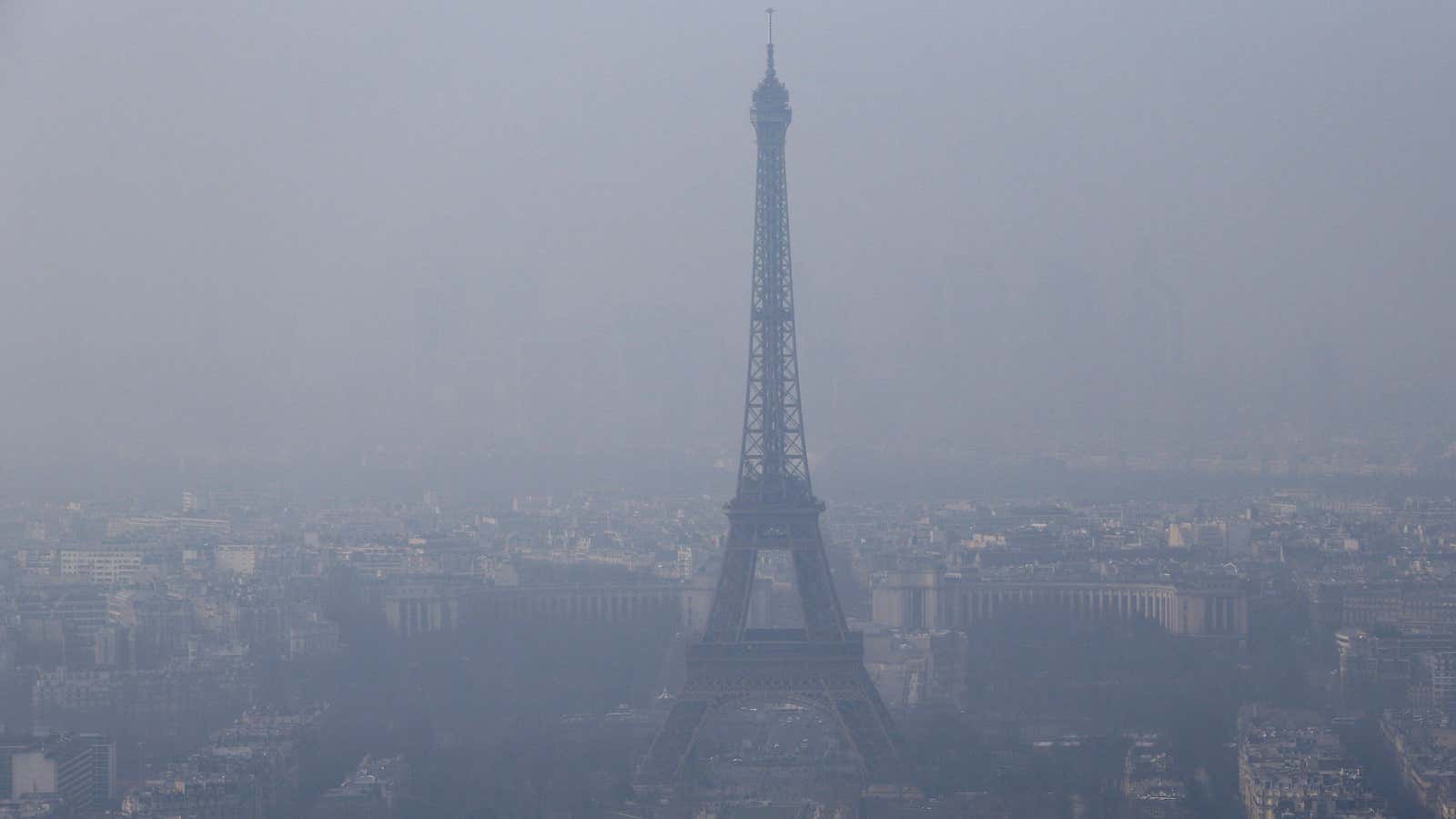Some of the biggest urban-pollution headlines of the past few years haven’t come from likely suspects like Beijing and New Delhi, but rather once-pristine European cities: Paris. Athens. Madrid.
Now those three capitals, plus notoriously polluted Mexico City, are taking action by getting rid of all diesel vehicles by 2025. They will be the first major cities to enact such a ban, according to a statement released at the C40 Mayors Summit in Mexico City.
The measure has obvious environmental benefits: Diesel releases 15 times more emissions than gasoline and has serious effects on human health. But there are some significant and equally beneficial side benefits:
- It’s a powerful move in the fight against climate change, and could create a market shift against the production of diesel vehicles.
- It tackles a massive public health crisis—in 2013 alone, 467,000 Europeans died prematurely for reasons linked to air pollution. According to the EU, diesel is the worst offender.
- It could ease traffic and encourage use of public transportation by making people reconsider whether to buy a new car.
- There should be a significant reduction in embarrassing photos of smog-covered urban landscapes.
“We no longer tolerate air pollution and the health problems and deaths it causes,” said Paris mayor Anne Hidalgo. “Big problems like air pollution require bold action, and we call on car and bus manufacturers to join us.”
Diesel cars currently make up almost 50% of the auto market in Europe, compared with 3% in the US. Pollution levels bear this out: Europe’s three largest cities have far higher nitrogen-oxide levels—more affected by diesel than petroleum—than American equivalents, and are only slightly less polluted overall than the ultimate sprawling motor city, Los Angeles, according to data from Plume Labs, a Paris-based company that monitors pollution in cities across the world. All these cities have pollution levels exceeding World Health Organization guidelines for maximum annual exposure, 20 micrograms per cubic meter (upm).
The ban is only the latest salvo in an ongoing battle. Both Madrid and Paris have tried to to cut smog levels by temporarily halving the number of cars. London mayor Sadiq Khan, who last month announced plans to phase out diesel buses and introduce zero-emissions replacements powered by hydrogen, is already under pressure to join the new ban.
Ironically, governments themselves had long promoted diesel vehicles, which produce a bit less CO2 than petrol. (Greenpeace Mexico transport consultant Areli Carreon points out that the majority of diesel users in Mexico City are actually government vehicles.) Car manufacturers now being nudged in a new direction are surely smarting at the turnaround.
“The decades-long support for diesel by EU governments [is] a self-inflicted public health crisis of historic proportions,” Plume Labs founder Romain Lacombe says. “Banning diesel cars from urban areas…is as courageous as it is necessary, and one of many steps we must take to save lives and reclaim clean air.”
